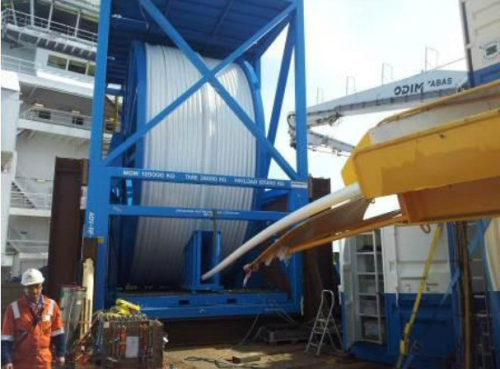
“This multi-year alliance promises to further improve materials, systems and solutions that will meet the oil and gas industry requirements for harsh deepwater operations,” says Marcus Kremers, chief technology officer, Airborne.
"This strategic alliance is an important milestone in achieving a robust supply chain, ready for scaling up,” he adds.
Airborne's thermoplastic pipes are manufactured in a fully automated manufacturing process at a factory near Amsterdam in the Netherlands. Pipe up of several kilometres in length can be made.
The pipe incorporates Celanese's Celstran® CFR-TP (continuous fibre reinforced thermoplastic) composite and is suitable for use in flowlines, downlines, jumpers, intervention lines, risers and other offshore pipe systems.
Celanese also recently signed a two-year contract extension with the Aachen Center for Integrative Lightweight Production (AZL), Germany, to jointly develop thermoplastic composite solutions for automotive, construction, and oil and gas applications.
Advantages of thermoplastic composite pipe
Airborne says its spoolable, lightweight composite pipe systems have high mechanical strength and withstand the extremely high pressures and tensile loads of deep-sea offshore operations. They also have excellent chemical stability and very good resistance to fatigue, ageing and permeation.
Because the composite pipes are more robust than existing pipe systems used in the offshore industry, they are faster and easier to deploy, thereby reducing operational costs.
Thermplastic pipes do not corrode, leading to reduced maintenance costs, and their smooth inner bore improves the pressure performance.

